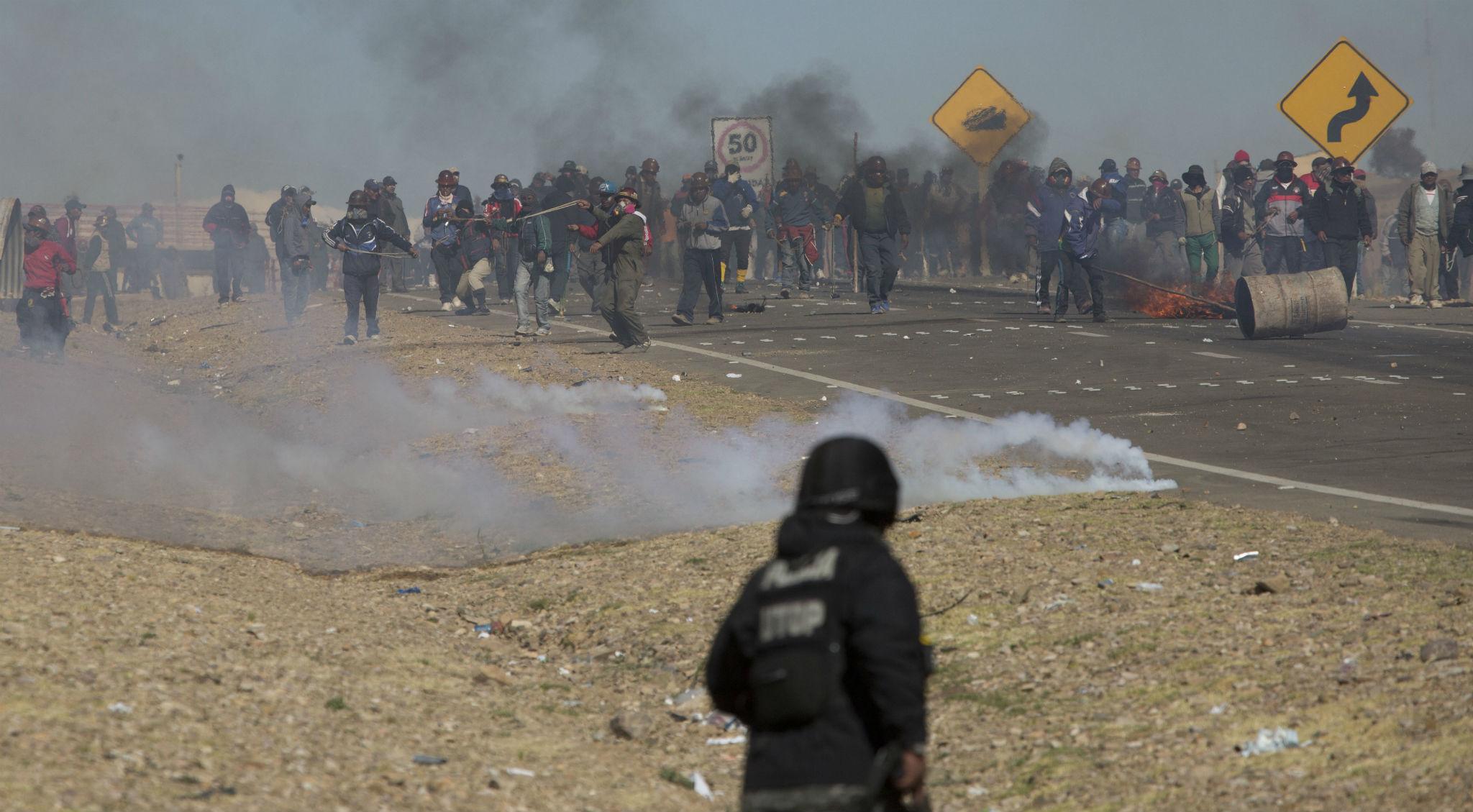Bolivian government minister 'beaten to death' by striking miners
Rodolfo Illanes, the country's deputy interior minister, had been seized when he went to negotiate with protesters outside La Paz

Your support helps us to tell the story
From reproductive rights to climate change to Big Tech, The Independent is on the ground when the story is developing. Whether it's investigating the financials of Elon Musk's pro-Trump PAC or producing our latest documentary, 'The A Word', which shines a light on the American women fighting for reproductive rights, we know how important it is to parse out the facts from the messaging.
At such a critical moment in US history, we need reporters on the ground. Your donation allows us to keep sending journalists to speak to both sides of the story.
The Independent is trusted by Americans across the entire political spectrum. And unlike many other quality news outlets, we choose not to lock Americans out of our reporting and analysis with paywalls. We believe quality journalism should be available to everyone, paid for by those who can afford it.
Your support makes all the difference.The Bolivian deputy interior minister has been kidnapped and beaten to death by striking miners, government officials said on Friday. Rodolfo Illanes, 56, had been dispatched to negotiate with the miners outside the country’s capital, La Paz, but was seized on Thursday. While being held, he spoke to a Bolivian radio station, telling them the miners were demanding the government negotiate new legislation with them to secure his release.
According to Reuters, however, Mr Illanes’s body was found early on Friday morning, wrapped in a blanket by the side of a highway connecting La Paz to the city of Oruro. He had died of repeated blows to the head. Bolivian interior minister Carlos Romero said “all indications” were that he had died as the result of a “cowardly and brutal murder”.
Tensions between the government of President Evo Morales and the country’s miners spilled into violence this week when negotiations broke down following a weeks-long strike. The National Federation of Mining Co-operatives of Bolivia said it would begin an indefinite protest.
The country has some 100,000 independent miners working in self-managed cooperatives, but the demonstrators are demanding the right to work for private companies, broader union representations, a loosening of environmental restrictions and other concessions.
On Wednesday, two protesters were reportedly shot dead by police. The miners had blockaded a highway in Panduro around 100 miles from La Paz, though the blockade was lifted on Friday after Mr Illanes’s death.
Speaking on national television, the country’s defence minister Reymi Ferreira became emotional, saying Mr Morales was “profoundly affected” by the killing. More than 100 people had been arrested, he added, insisting: “This crime will not go unpunished.”
Mr Morales, himself a former farmer, nationalised Bolivia’s mines when he assumed power in 2006, rerouting the profits to anti-poverty efforts. But the labour unions who originally considered him an ally have since become sceptical amid claims of government corruption.
Announcing a three-day period of mourning on Friday, Mr Morales said: “Our natural resources belong to the people, which is why I call brother Illanes a hero in the defense of our natural resources.”
Join our commenting forum
Join thought-provoking conversations, follow other Independent readers and see their replies
Comments